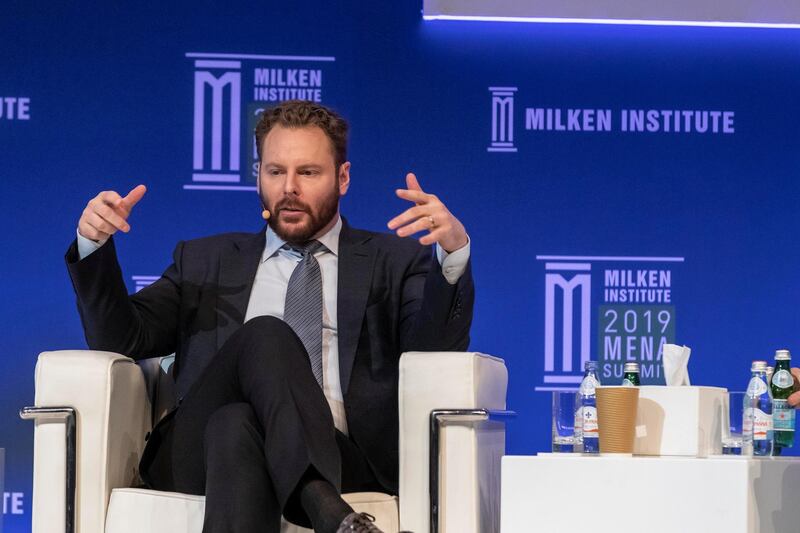Tech guru Sean Parker has said the world has become too preoccupied with Elon Musk’s doomsday predictions of robots taking over the world, and should instead be debating the ethics of gene editing.
The 39-year-old claimed Tesla co-founder’s apocalyptic visions of robots enslaving the planet had obscured important questions more worthy of public scrutiny.
“We are talking a lot about artificial intelligence,” Parker said at the Milken Institute’s MENA summit in Abu Dhabi on Tuesday.
“Way too many people are listening to our friend Elon Musk with his comic-book dystopian vision of artificial super intelligence that takes over the Earth and enslaves humanity.
“I don’t think that’s where we should be concerned. The debate about gene editing is the one debate we are not having.”
Parker, the co-founder of Napster and Facebook’s founding president, was speaking at a panel event on biomedicine during the two-day conference.
He said the world was right to be concerned by the ethics of gene editing, arguing, for instance, that it raised tough questions for parents of unborn children found to have serious disorders.
“Or you get that genetic test and are given an opportunity to edit out a very significant, hereditary disorder,” he said.
Gene editing remains a grey area for many countries and there are multiple safety and ethical questions surrounding the science.
In the United states, for example, the food and drug administration is currently barred from trials that involve the editing of human embryos. But gene editing has been attempted elsewhere.
Last year, the scientific community expressed anger over a Chinese scientist’s claim that he had edited the genes of twin girls before they were born.
Parker said his focus was now on other priorities: including finding a cure for cancer. Three years ago, the internet pioneer donated $250 million (Dh918m) to fund research into immunotherapy – a type of advanced cancer treatment that tells the body’s immune system to attack tumours.
And in Abu Dhabi on Tuesday, he spoke about how more money was flooding into biotechnology
“There is a huge amount of capital there looking for opportunities,” he said, pointing out that venture capitalists were coming into the sector because of new tools such as sequencing of the human genome. “This is the biggest unreported story,” he said. “That and the advent of gene editing.”
Parker said technologies were close to the point where human DNA could almost be treated as a programming language.
“This is a revolution that will touch all parts of medicine and being lower prices," he said. "Competition and more drugs coming to market will mean lower prices. Diseases will be addressed by a new generation of bio-tech companies.”
Napster was established in 1999 as a free file-sharing site that allowed people to swap music over the internet.
Heavy metal band Metallica famously sued the firm and Napster was eventually closed by the courts. But Napster is now considered to have laid the groundwork for sites such as iTunes and Spotify. Parker went on to become Facebook’s founding president.
But he then switched to medicine and in 2015 started the Parker Foundation with a $600m contribution. His wealth is estimated at $2.5 billion and he has also invested hundreds of millions of dollars into finding a cure for cancer.
Immunotherapy has had some good results in patients and is at the cutting edge of cancer treatment, but more remains to be researched.







